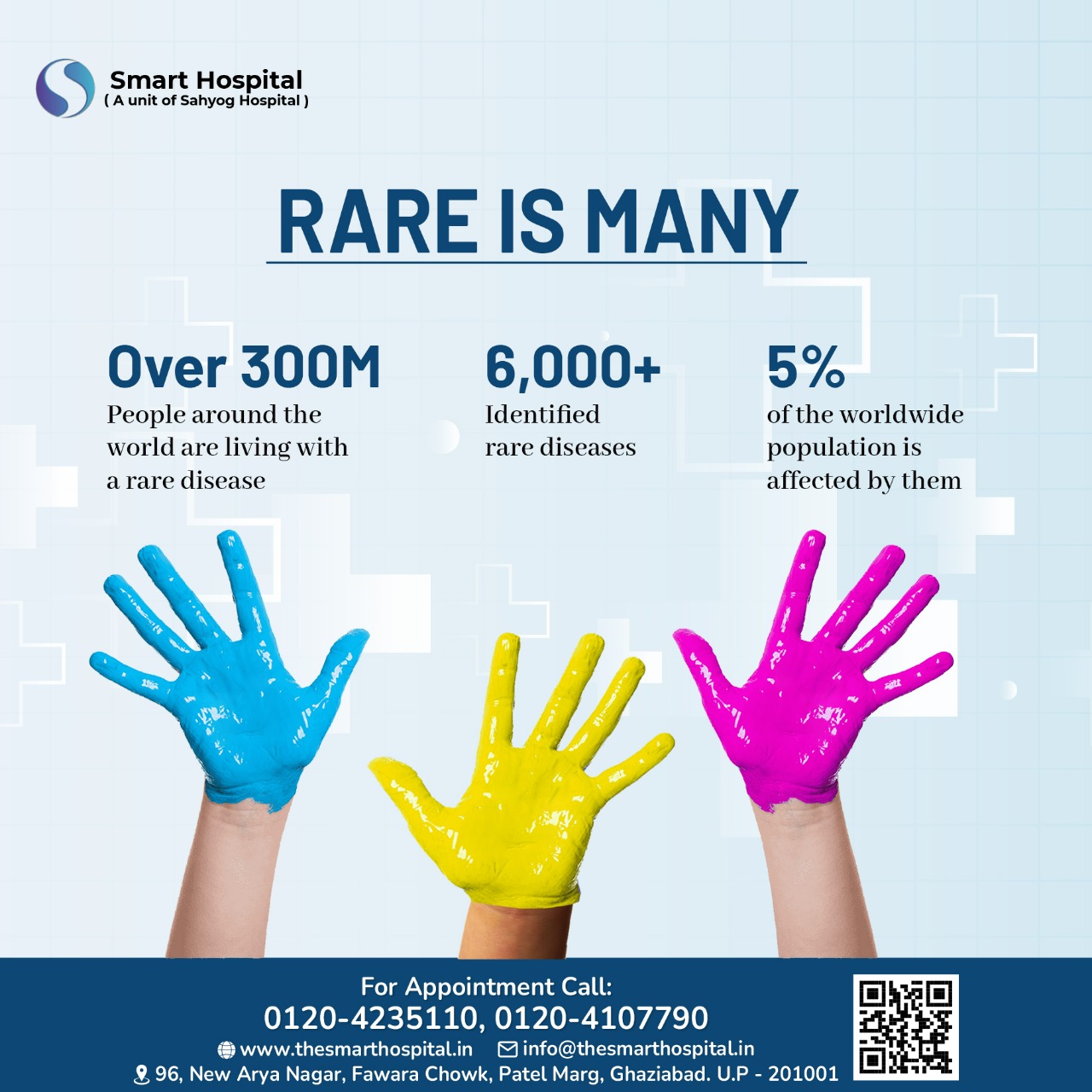Rare Diseases Day is celebrated to raise awareness about rare diseases. The day was first celebrated on 29 February 2008. The date was considered as rare as 29 February occurs once every four years. Since then, the day has been observed on the last day of February.
What are Rare Diseases?
The World Health Organization (WHO) defines rare diseases as those lifelong diseases occurring in one person in a population of one thousand. However, this definition varies in different countries. A disease rare in one country or area could be common in another, so other countries have different purposes to suit their specific requirements. As they have lower occurrence than common diseases, they are often overlooked. Not a lot of research has been performed on these diseases. Therefore a person suffering from any rare disease might not receive the proper medication. There are 7000-8000 lesser-known diseases, and some of them are cystic fibrosis, primary
immunodeficiency disorders, lysosomal storage disorders, small molecule inborn errors of
metabolism, osteogenesis imperfecta, certain forms of muscular dystrophies, etc.
Challenges Faced With Rare Diseases
Lack Of Awareness
As rare diseases are not familiar, physicians tend to have less or no knowledge about these diseases. Lack of awareness might result in wrong treatment. This has also resulted in less research.
Diagnosis
Rare diseases are hard to diagnose because no proper diagnostic facilities are available. Shortage of adequate screening is another factor resulting in slow diagnosis. Many primary health care facilities cannot interpret these correctly. Delay in diagnosis or wrong diagnosis will directly affect the health of a patient suffering from a rare disease. The condition can worsen with time.
Most of these diseases result from genetic disorders and require genetic testing as a part of the diagnosis. But this test comes with its limits. Only a handful of conditions can be diagnosed with it. Additionally, some more trials are performed after a negative test result, such as chromosomal microarray or next-generation sequencing-based tests, which are expensive. They also require a lot of time with interpretation.
Treatment
Proper research and testing about various rare diseases have not been performed. This is because very little is known about the pathophysiology of these diseases. Again, analysis is complex with a small patient pool, resulting in insufficient clinical experience. These diseases are chronic, and therefore, long term treatment data is essential to understand these diseases. But there is a lack of such data. In the end, all these things result in poor treatment. There is the unavailability of treatment for a rare disease most of the time. So, even if a rare disease has been diagnosed, the chances of receiving proper medication are still low. About 5% of rare diseases have approved treatments, having high costs.
Main Objective Of Rare Diseases Day
The main objective is to raise awareness about these diseases among the general public, researchers, healthcare workers, industry representatives and policymakers. It also highlights rare diseases’ impact on patients and their families.
It is essential to eliminate all the challenges patients and the medical fraternity face. By raising awareness about these diseases, people will develop solutions through more research and better treatment. An early diagnosis, affordable testing and right treatment is required for different rare diseases.
Various awareness programmes are held on this day to encourage various stakeholders to research different rare diseases. More studies about these rare conditions will help better understand a particular rare disease, creating improved treatments. The participation of the government is essential as well. They can educate healthcare workers and equip primary healthcare facilities to diagnose them. Also, the government can control the cost of testing and treatment of these diseases so that most of people can afford them. This will result in a better future for patients and their families for rare diseases.
For better awareness connect with the experts at the best hospital in Ghaziabad.

